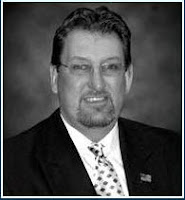Elderly Find Themselves Trapped in Abuse
West Cape, South Africa .- By Brenda NkunaLack of finances and long waiting lists at old-age homes are leaving elderly people in Cape Town trapped in their communities, where they are often vulnerable to abuse and exploitation.
Out of six old-age homes contacted in Cape Town, all reported long waiting lists, with some saying access to sufficient funding was a constant struggle.
Social workers caring for the elderly say there are high levels of under-reporting of abuse, and that older people are subject to physical, financial, psychological, emotional, sexual and verbal abuse.Women are particularly vulnerable and those who are mentally and physically weak are seen as "easy targets".
Halt Elder Abuse Line (Heal) Khayelitsha co-ordinator Winnie Dywili said it was "heartbreaking" to see elderly people who were "scared and ashamed" to speak out about being abused.
In cases involving rape, she said it was "very hard" for black elderly women who had been raped to report their attacks because of an inclination among the elderly not to talk about sex and a fear that their families would be "disgusted".
She said although many elderly people did seek counselling, they were reluctant to approach police and as a result the abuse continued.
One woman who has experienced abuse first hand from multiple family members is Letecia Kondlo, 67, (not her real name) from Khayelitsha.
She said after suffering a stroke in 2002, her two sons had abused her physically and verbally over a period of five years.
After her stroke she had gone to live with a younger son in Johannesburg, who had taken her social grant money and used it for his own needs.
When she had demanded her money, she said her son and his girlfriend had accused her of witchcraft and kicked her out of their home, forcing her to leave behind her furniture, blankets, and clothing.
Having moved in with an older son in Khayelitsha in 2005, she said she had been "klapped and hit" continuously.
"I could not believe that my once innocent children turned into monsters with no respect," she said.
Having spoken to members of her church about her abuse she was able to gain placement in a Khayelitsha old-age home last year.
But many older people risk being stuck in situations of abuse.
Dee Willis, programme manager at Neighbourhood Old Age Homes (Noah), which helps poor elderly people in the Western Cape, said its home in Khayelitsha was "desperate" for help, because it could only accommodate 20 people, but "a thousand more need assistance".
"Abused elders end up in a situation where they don't have a choice. We need to help them," she said.
In Mitchells Plain, Beaconvale Home for the Aged general manager Raymond Mitchell said it was hard to accommodate people.
He said as the only home in Mitchells Plain, it could only take 135 residents.
He said there had been "rapid growth" of its waiting list, which was currently at 75. In most cases it was forced to turn people away because it was full.
Mitchell said poverty, crime, and unemployment created a hostile environment for elderly people in communities.
"We need to get more facilities, so we can remove them before it is too late," he said.
Jan Honing, superintendent at the George and Annie Starck Home in Bellville, said old-age homes battled due to a lack of money. Attracting suitable staff was also a problem.
He called on the government to increase subsidies for old-age homes.
The social development department currently funds registered old-age homes according to different categories, with amounts varying between R750 and R1 200 per person accommodated monthly.
Western Cape social development department spokesperson Phumzile Simelela said an amount of R116 047 000 was allocated to 130 old-age homes in the Western Cape last year.
But Heal director Pat Lindgren said there was a desperate shortage of money and maintenance at homes.
She said more and more people wanted to be looked after in old-age homes.
Lindgren said renewed respect and dignity needed to be shown to older people in acknowledgement of their wisdom, life experiences and their contribution to society as caregivers to sick adult children as a result of HIV/Aids. - West Cape News
















No comments:
Post a Comment